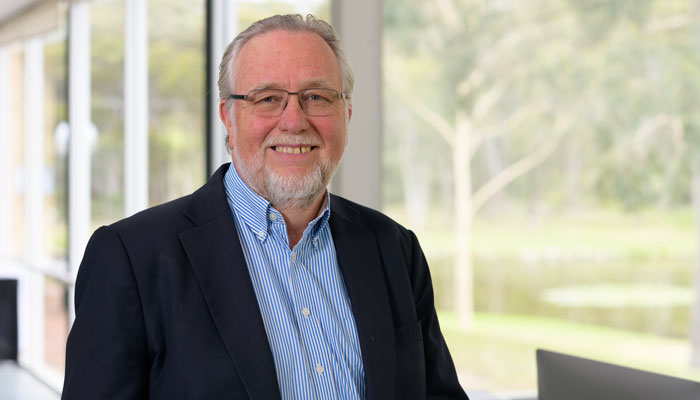Trusted verification of an individual’s skills, qualifications and certification is becoming a major problem for employers and government agencies. In the 21st century the idea of fake resumes is a real and growing concern. Individuals can forge, invent and craft their learning histories, and get away with it.

Lying game: Up to 50 per cent of people know someone who has given false information on their resume, US research shows.
How common is lying in resumes? According to the number of high-profile people caught out in the last few years, more common than you would think. The media is full of reports almost weekly of very senior people being found out faking their work history, and their credentials.
We have the recent case in 2018 of the chief information officer from the Department of Premier and Cabinet in South Australia, who claimed to have 20 years of experience with several big tech firms, including the accommodation booking site Wotif. However, when investigated by police it turns out she never worked there at all.
Then there is the front page media case in 2015 of former Myer executive Andrew Flanagan who falsified his CV to land a $400,000 a year job as the group’s general manager for strategic and business development. Most recently in NSW there have been heated exchanges around the veracity of resumes published by members of political parties seeking pre-selection. “Alternative facts” are everywhere, it seems.
The Risk Advisory Group in the UK estimated in 2017 that 80 per cent of all CVs contained at least one lie or discrepancy, and this estimate is endorsed by some recruiters in Australia – those prepared to speak out at least.
On the other side it is estimated (not proved) that only 20 per cent of employers run serious background checks on the resumes they have been handed by prospective employee. In the US research indicates that up to 50 per cent of people know someone who has lied on their resume. It’s a global issue.
Easy fakes make due diligence a nightmare
This is not just a problem for high-end jobs. The increasing number and use of certification, credentialing and on-the-job experience in administrative, technical and production work means that everyone who wants or who occupies a position where skills and experience are required are more and more subject to proving they have claimed to have learned for their trade, occupation and discipline.

Eye on fakes: Professor Daryll Hull says modern technology allows for almost undetectable plagiarism.
For example, while a truck driver or courier can produce a driver's licence which can be easily checked on line by a traffic inspector, the driver’s claim to safe working training, specialised driving skills and customer relations experience is not so easily checked. Certificates can be faked, testimonials cut and pasted, and work experience created as a fiction.
The emergence of a lifelong learning culture in the 21st century also means that employers are now looking at people's on-the-job experiences and credentials over many years, as well as more formal qualifications – long-term recognition and verification of many forms of education and training is needed. Current systems are not proving up to the task. Modern technology allows for almost undetectable plagiarism. Undertaking due diligence has become a nightmare.
Skills verification app on the horizon
Macquarie University and the highly respected Queensland Tertiary Admissions Centre (QTAC) have concluded a five-year agreement to jointly explore an application for online skills verification software in Australia. An encrypted and secure system once developed will provide a high degree of integrity in resumes, job applications and performance reviews – the ability to “fake” results and certification will be removed through the process. If an approved education company in the system says you have a degree, a prospective employer can rest assured that you actually have that degree.
QTAC will undertake the software development, in conjunction with local and international experts. Macquarie University through the Centre for Workforce Futures in the Macquarie Business School initiated and facilitated the bringing together industry stakeholders and experts in credentialing to apply the idea in the workplace. A test site will be chosen in 2019-2020 in the road transport sector to test the software, under the guidance of an industry reference group, and located in a national transport company. It will build on an existing “skills passport” ID card. It is a complex arrangement, but one that will pay large dividends for employers, governments and employees once it is adopted as mainstream technology.
Introducing the 'digital backpack'
What exactly are we looking at here?
Imagine a 'digital backpack' in which you can keep all your recognised learning over your life, and carry it with you via a smartphone application. Anyone to whom you give access can be assured that you actually have the credentials you say that you have.
You can carry a digital record of experiences and skills as long as they are certified and verified by a third party recognised in the system, eg a TAFE, University or Registered Training Organisation. Employers can also verify the skills and experience of present and past employees if they join the system.
* Why co-ops could be the solution to corporate corruption
This collaboration between Macquarie University and a leading tertiary support agency with more than 70,000 student registrations per year and also working with an industry forum with more than 80,000 ID cards in play acting as a 'skills passport' will offer significant reach and impact in workforce matters.
It will provide employers and employees greater certainty when engaging with each other. It can apply to every occupation, and all sectors of the economy, at scale and independent of the nature of the occupations and work organisation.
Our role as an enabler of the collaboration between the stakeholders has been pivotal in making things happen.
Professor Daryll Hull is Director of the Centre for Workforce Futures in the Macquarie Business School.



